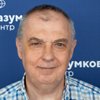During Putin's visit to China, world news agencies shared a story based on a video reel released to them by China's central state television channel, which contained a fragment of a conversation between Vladimir Putin and Xi Jinping, where Putin says that "thanks to the development of biotechnology, human organs can be constantly transplanted, and people can feel younger and younger and even achieve immortality."
Speaking of such biotechnologies, Putin meant the so-called "biological printing" of organs — one of the projects of the program meant by the Russian authorities to defeat aging.
Last year, Russian opposition journalists from the investigative project Sistema, Radio Liberty and Meduza found out that the Russian Ministry of Public Health had launched a national project called “New Technologies for Health Preservation” in 2024.
The project is about developing “biomedical technologies of the future for active longevity and healthy aging.” In addition to bioprinting “spare parts” for the human body, this project involves deals with medical products designed to mitigate the effects of aging, such as senile asthenia, osteoporosis, etc., developing new neurotechnologies, and methods of correction of the immune system.
Meanwhile, according to a source close to the Kremlin, the real reason behind the emergence of the organ bioprinting project is “an obsession multiplied by lobbying” by Putin’s closest friend, physicist Mikhail Kovalchuk, who heads the Kurchatov Institute and manages the Federal Scientific and Technical Program for the Development of Genetic Technologies, in which Putin’s eldest daughter, endocrinologist Maria Vorontsova, is employed.
Although experts question the possibility of using these technologies to extend life expectancy in the coming decades, more important is the fact that such ideas have become an element of social mythology in Russia.
One of the first in Russia to introduce the mythologem of immortality into modern Russian political mythology was the far-right ideologue Andrei Kolyev in his book “Political Mythology: Exercise of Social Experience,” released in 2003, which promotes the ideas of a “conservative revolution” in the spirit of the German National Socialism, including the idea of the unity around a “national leader”:
“A national leader is an indispensable condition of a ‘conservative revolution’. He has no right to refer to the limitations imposed by law or to the will of the majority… The masses seek an idol, not a defender of their interests. Therefore, the leader of the masses, who is necessary for a ‘conservative revolution’, should use ideological violence — show the masses the absolute truth, the discovery of a new world, a new life… Only then will the masses believe in the leader, and the leading classes will become his party. Only then will the energy that the masses draw from their dreams and illusions, and the intellectuals from rational calculations, spill out to the surface. In this case, the leader will be able to lead great many people with the most diverse individual traits to one goal, which can be dictated by his will, the mind of the national elite.”
It seems that Kolyev’s works have become the ideological basis of Putin's regime. Regarding immortality, Kolyev writes: “The metaphysical goal of the Russian myth is the reorganization of the Universe on the principles of human nature, the suprahistorical goal is the victory over death (the victory over old age and diseases, the bodily resurrection of the forefathers) and the creation of the Superman — the man of the future” (analogies with the mythologems of the Nazi “Third Reich”, which even claimed a thousand-year existence, are obvious here).
So, we can talk not only about attempts to achieve real immortality, but also about the inclusion of the “mythologem of immortality” in the official Russian political mythology. (Putin said three months ago: “Do you know what the main idea of today's Russia is? That’s interesting! — Immortality!”).
But for Putin, the idea of immortality also has a “personal dimension,” associated with his desire to stay in power as long as possible. Since in political regimes such as the current Russian one, a change of power can only occur “naturally,” that is, through the death of a dictator, the idea of “eternal life of the leader of the nation” should deprive Russians even of the hope for such a way of Putin’s departure from power. At the same time, not he alone is now interested in “Putin’s political immortality,” but the entire ruling Russian elite, because under authoritarian and totalitarian rule, the physical death of a dictator may lead to the collapse of the regime as a whole and the removal of the entire political milieu of the deceased dictator from power — as is happened, say, in Spain, where Franco’s physical death marked the beginning of the end of the political regime he led.
In the situation of the war unleashed by Putin, the problem of the immutability of the Russian leader as a safeguard of the stability of the regime becomes especially relevant for the current Russian elite.
How Putin’s “eternal political life” will be technically ensured, contrary to the laws of nature, is a problem for “those in power,” but given the above, it is highly unlikely that Putin’s entourage will allow him to publicly “depart into eternity” in the near future. Perhaps this is the reason for the introduction of the narrative of immortality into the media space (at least, with respect to one infamous person).
https://razumkov.org.ua/statti/bezsmertia-putina-iak-politychna-tekhnologiia




